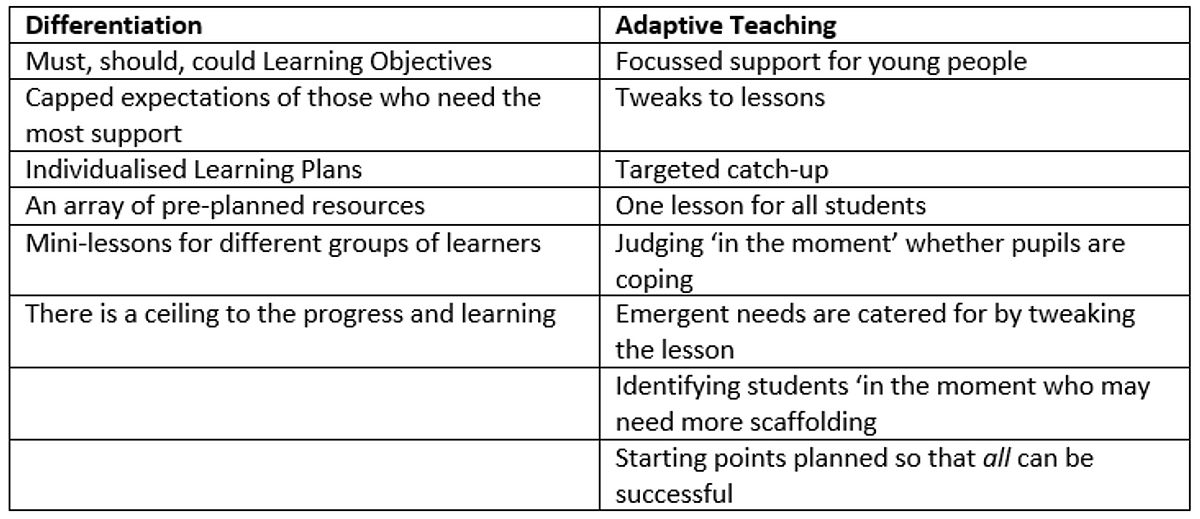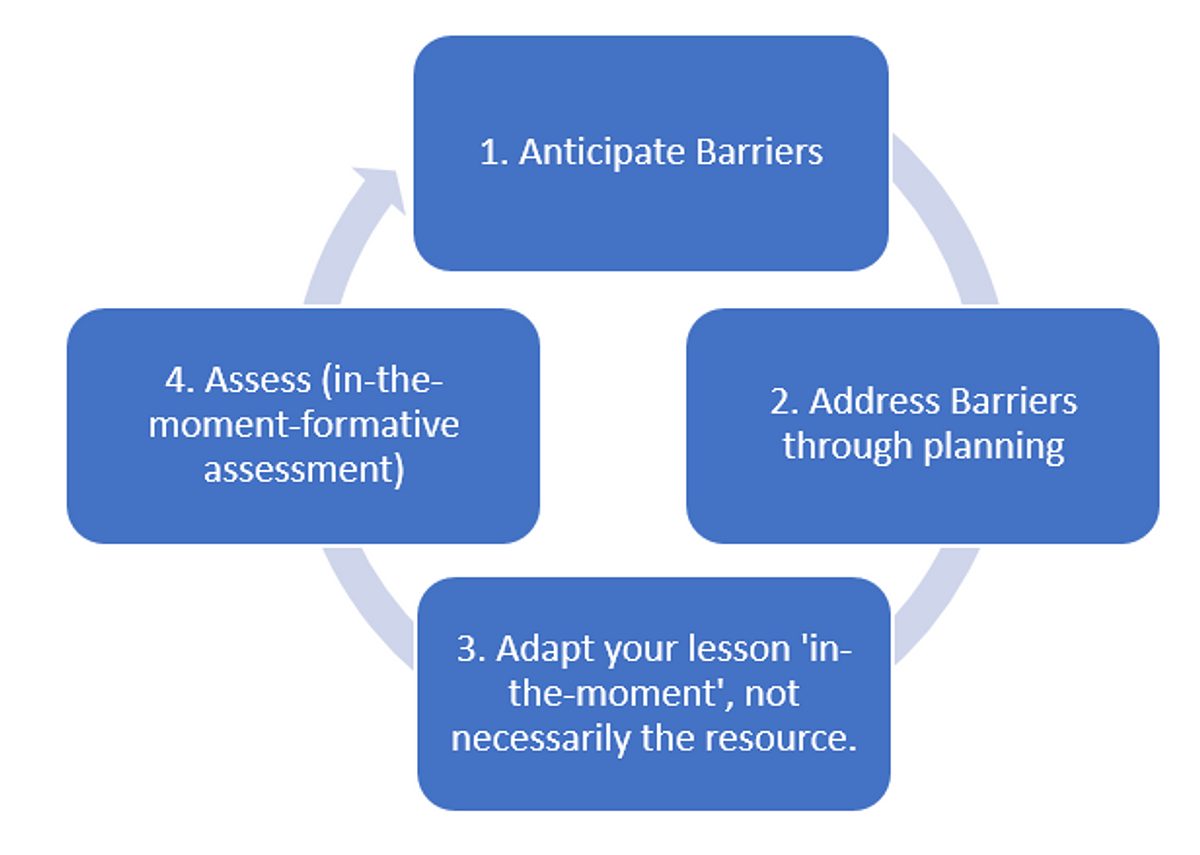
Metacognition in action
Secondary case study: an approach for long answer tasks in Science
Share on:

by Huntington Research School
on the
The past 3 years have seen many changes for teacher training; the publishing of the Initial Teacher Training (ITT) Core Content Framework (CCF), the early pilot of the Early Career Framework (ECF), and now all schools following the two year ECF.
The ITT CCF defines the minimum entitlement of all trainee teachers and draws upon the best available evidence. The ITT CCF is not a curriculum for teacher training. It is designed to support providers to plan their curricula and providers should ensure their curricula encompass the full entitlement described in the ITT Core Content Framework. The ITT CCF is not an assessment framework and trainees are not expected to collect evidence against the ITT CCF.
The ECF stipulates clearly what early career teachers are entitled to learn about and learn how to do when they start teaching. It is the foundation for 2 years of professional development for early career teachers which is designed to support them to develop their practice, knowledge and working habits.
As part of my role as ITT Professional Mentor and ECF Induction Coordinator, I’ve been delving into both documents regularly. On first inspections of both documents, there are many similarities with The Teachers’ Standards. The CCF feeds into the ECF which then feeds into the Teacher’s Standards. Both the CCF and ECF are designed to really support those in the early stages of their careers and training in 5 core areas – behaviour management, pedagogy, curriculum, assessment and professional behaviours.
All those of us who have been teaching for 4 years plus will think back to our teacher training, and targets set to us by our host teachers…’Work on differentiation, try using a gap-fill task (for example) for longer explanations for those who find written work more challenging.’ And we would have duly headed back to plan our next lessons and will have created 3 different worksheets to cover exactly the same content – one worksheet for our low-prior attiners, another for mid‑, etc. Really interestingly, the word ‘differentiation does not appear in the CCF or the ECF at all. What the CCF and ECF do is modify the idea of differentiation into adaptive teaching – supporting with teacher workload (no more creating multiple worksheets!) and
supporting students to make super progress.
In this blog, I hope to draw on the work of Jon Eaton and his Blog on Adaptive Teaching (https://educationendowmentfoundation.org.uk/news/moving-from-differentiation-to-adaptive-teaching) to –
1. Define what adaptive teaching is
2. Focus on what it looks like in the classroom
3. Ask some questions surrounding possible next steps for ITT and ECT provision and also for teaching as a whole
What is ‘Adaptive Teaching’?
ECF, Standard 5 defines it as – ‘Provide opportunity for all pupils to experience success, by adapting lessons, whilst maintaining high expectations for all, so that all pupils have the opportunity to meet expectations.’ And when I think of adaptive teaching on the most simplistic of levels, it’s about tweaking our lessons, so that all can make great progress. If we also consider Standard 1 of the ITT CCF (‘Set high expectations’), the idea of adaptive teaching really resonates here too insofar as teacher expectations can affect pupil outcomes and that setting goals that challenge and stretch pupils is essential.

What does ‘Adaptive Teaching’ look like in the classroom?
The blog by the EEF (EEF blog: Moving from ‘differentiation’ to ‘adaptive teaching’ | EEF (educationendowmentfoundation.org.uk)) really helped the ‘how to’ of adaptive teaching come alive for me.

It’s useful to have a bit more of a focus on stage 2, addressing barriers to learning through planning. Again, this is not making 3 different resources which all cover the same content, rather asking ourselves in advance of the lesson:
- What are the ‘ways in’ to teaching this?
- What are the access points to help make learning more successful?
- Some self-reflection here on your prior knowledge regarding teaching particular content can be useful – this will help you to think where you may need to alter and tweak your lesson.
Looking at stage 3, it’s about making those really subtle changes in the lesson to support the learning, not about using another resource for example:
a. Clarifying to students what good learning looks like.
b. Providing an intermediate goal to support the learning.
c. Supporting all students to work towards the same goal, but breaking the learning down, for some, into smaller steps.
What makes new ideas come alive the most is by actually seeing how this works in the classroom. Here is an example that I use in my teaching. This is for teaching calculations in Year 11 Chemistry. There is nothing new here – it’s a fairly simple checklist that can support students when they are working through calculations in chemistry. This will be on the board during independent practice. During my circulation around the classroom, I will be able to identify students who are finding the learning slightly more challenging and I will point them to the checklist on the board. More often than not, I will literally read on the checklist questions to them encouraging them to reflect on what they have and have not done during the task. I do this ‘in-the-moment’.

Possible next steps for ITT and ECT provision and also for teaching as a whole.
If I were not in my current role of leading ITT and ECT Provision across the school, I really need to ask myself ‘how would I know about adaptive teaching?!’ I think this, for me, has raised a number of reflections:
- How can we ensure that teams of ITT Mentors in schools are upskilled surrounding adaptive teaching? They are expert practitioners, each and every one of them – but will they really know and understand the shift from differentiation to adaptive teaching?
- How can we ensure that this point is also addressed for ECT Coaches in schools?
- How can we support all colleagues in schools with this shift in practice? Is there any scope for working with colleagues in school to support their own shift in practice from differentiation to adaptive teaching?
Alister Talbot, ITT Professional Mentor and ECF Induction Coordinator, Huntington School

Secondary case study: an approach for long answer tasks in Science

The rise of the use of research evidence in education – an opportunity and a challenge

Utilising sixth formers to boost the extracurricular offer
This website collects a number of cookies from its users for improving your overall experience of the site.Read more